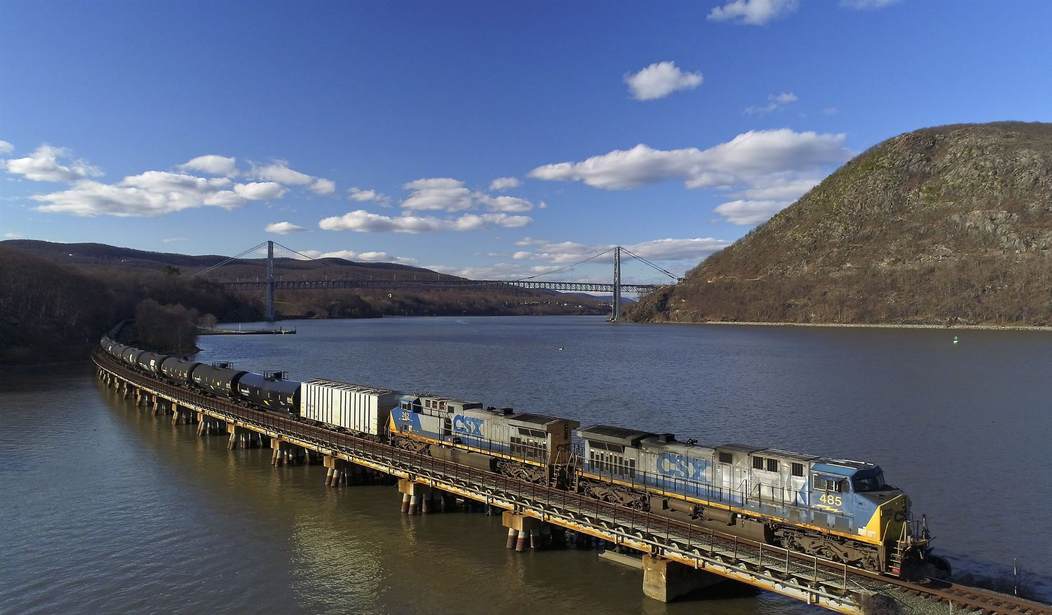Freight rail has been an unquestionable success of government deregulation. Since deregulation was passed over forty years ago, America’s rail freight industry has gone from the brink of collapse to one of the most efficient and productive. A recent report from the American Consumer Institute (ACI) has highlighted this fact, showing since the passage of the Staggers Rail Act, the industry’s productivity has increased 159%, shipping volumes have increased 57%, and prices have plummeted 44%. In addition to these gains, the industry has also been able to generate “more than $10 billion in annual consumer welfare.”
However, despite these substantial improvements in rail freight since the 1980s, the Biden Administration and Surface Transit Board (STB) have proposed new rules that would undo many of these gains. Research by ACI shows that these proposed regulations would leave consumers worse-off by unnecessary government intervention.
In July 2021, President Joe Biden issued an executive order designed to promote competition among several industries, including rail freight. As a result, the STB has proposed mandating reciprocal switching on freight providers. Mandated reciprocal switching would require a railroad operator to take competitors’ traffic onto its privately-owned and maintained tracks at rates set by the STB. These regulations would return the U.S. to the previous regulations of the 1970s.
The onerous regulations proved catastrophic for the industry. Not only did “major railroads in the Northeast and several major Midwestern railroads” go bankrupt, but industry’s return on investments averaged 2.4% during the decade prior to regulatory reform. The elevated level of bankruptcies and low return on investment left the companies unable to maintain track and rolling stock and unable to compete with alternative modes of transport.
The problem of underinvestment in freight rail was so prolific in the industry that the term standing derailment was coined – a situation where poorly maintained “railcars that were standing still simply fell off poorly maintained track.” It is estimated that because of government regulations, there was approximately “$4 billion in deferred maintenance and delayed capital spending.”
Recommended
Rail deregulation came about as a result of the Staggers Rail Act of 1980, which was passed a Democratic-controlled Congress and was signed into law by then President Carter. Under the provisions of the Staggers Rail Act, carriers were allowed to abandon unprofitable routes and encouraged to adopt flexible and differential pricing. Before the passage of Staggers, freight rail companies faced rate regulation, mandated service, and other onerous regulations that suppressed market forces.
The passage of the Act, however, was a gamechanger for the industry. According to the Association of American Railroads, freight rail rates have dropped approximately 44 percent since 1981. In the immediate aftermath of deregulation, it freight rates cost around 8 cents per ton-mile, compared to 4.5 cents in 2019.
Given that transport costs can make up 25% of a goods total costs, low per ton-mile fees ultimately result in lower prices for consumers. Conversely, returning to stringent regulations could see the per ton-mile fee rise and be passed onto consumers in the form of higher prices for goods as the cost of transporting goods across the country increases.
Despite a fall in rates, freight rail companies have made substantial investments, mainly because they are no longer required to maintain service on unprofitable routes. In addition, reduced government regulations encouraged freight rail companies to invest “approximately $740 billion" “on capital expenditures and maintenance expenses.” As a result, today, all major freight carriers earn adequate return on investment. The result has been better service and lower prices of goods for consumers.
This significant level of investment has also allowed them to create environmentally friendly rolling stock. Not only do freight trains emit fewer greenhouse gasses than trucks or aircraft, but freight trains are “3-4 times more fuel-efficient than trucks.” As a result of Staggers, consumers and businesses have reduced their carbon footprint while still enjoying a range of goods and services.
These substantial gains could all be undone if the STB mandates reciprocal switching. As ACI’s research shows, if reciprocal switching were to be imposed, these regulations would create bottlenecks on rail networks, reduce efficiency, and put bureaucrats in charge of setting rates. The result would be increased prices for shipping goods across the country, reduced investment, and consumers receiving poorer service in an industry that has generated substantial consumer benefits.
With federal regulators once again considering imposing burdensome regulations on the freight industry, they should consider the substantial success that deregulation has brought to the industry. If they looked at these successes, they would realize that deregulation has lowered prices and allowed for increased investments, resulting in a more efficient and environmentally friendly industry. Unfortunately, returning to a heavy-handed regulatory environment would derail these gains and put the industry back forty years.

























Join the conversation as a VIP Member